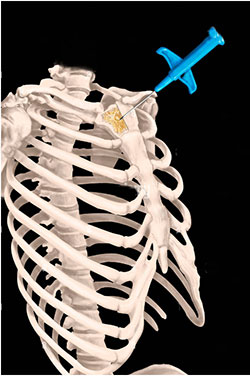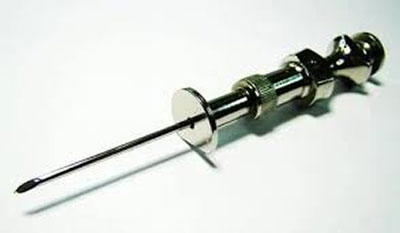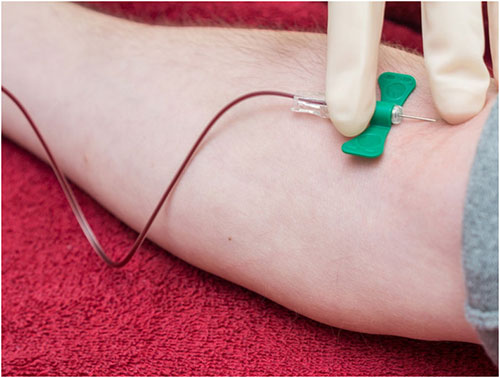HOME | FAMILY | CONDUCTING | SINGING | USU | STEINER | STANFORD | PHOTOS
26th AMENDMENT SIGNING | MEMORIES | YOUTUBE/VIMEO VIDEOS
Polycythemia
When I was 16 or 17 years old our doctor ordered a blood draw. As I remember, I was experiencing a great deal of fatigue and lack of energy. My parents became concerned and spoke with our family physician, who then suggested a blood analysis. After the lab results were returned, I was sent to The University of Louisville Medical School for further investigation. I drove myself to Louisville and checked in the physician's office. Because the doctor sought further information, he told me that he needed to perform a sternum puncture to obtain bone marrow. I recognized the meaning of the sternum (the breast bone) but didn't fully understand what or how a sternum puncture would be performed, where it would happen, and what to expect. I was told the the doctor himself would perform the puncture, and that I should just lay quietly on the same examination table.

As I recall, it was intensley painful but over soon. I also remember the doctor warning me that I must not move during the procedure because the needle would be penetrating the upper portion of the bone and that the position of the needle would be extremely near the heart. If I moved it could cause the needle to thrust through the other side of the bone and damage the heart. Boy, did I lay still even though the pain was severe.

OUCH!
I was eventually informed that I had been diagnosed with polycythemia - a disease I had never heard of before. When I discussed it with many people, none also had ever heard the name. Polycythemia is a condition of the blood in which an excessive amount of red blood cells are produced. This may make the blood rather thick and sluggish and increase the probability of blood clots, stroke, and even heart attack. The blood also carries less oxygen. Other than fatigue, I don't remember any symptoms, however. This is not unusual, because patients who are diagnosed with polycythemia often do not exhibit many symptoms. It is rare and only affects approximately 50 out of 100,000 patients.
I don't recall if I was prescribed any medications for polycythemia, but I do remember that for several months (probably approximately 2 years) I submitted to a one pint of blood removal each month. (That's a lot of sticky red stuff!!!!)

Because my disease was suspected to be "secondary" polycythemia, after a couple of years there were no more symptoms. I recently discussed this history with my physician who reassurred me that there were no lingering effects and I have no further complications of the desease.
